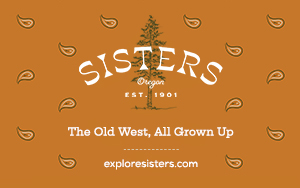Letter to a loved one after the election
Last updated 11/17/2020 at Noon
In the aftermath of the elections, there’s exhaustion, relief, anger and a determination to keep pushing agendas. Recently, my cousin, who lives in Southern Oregon, sent me a text suggesting I listen to a conservative political pundit and author, Ben Shapiro. She said she trusts him to provide her the facts she uses to formulate her opinions about what’s going on politically. I hadn’t heard of him so I followed her suggestion to check him out.
As I read and listened, I could feel my stomach tighten. Suffice to say, he doesn’t like me very much.
I’m a person who honks and gives the folks peacefully protesting on East Cascade Avenue a thumbs up. I haven’t joined them because of COVID-19, but I sure appreciate what they’re doing. I’ve heard stories of “Rolling Coal,” trucks spewing them with diesel smoke and people driving by yelling obscenities at them. And still they show up, take the abuse and appreciate the supportive waves that help inspire them to keep pushing for change.
Here’s an excerpt of what I wrote to my cousin, whom I love and have always considered a friend as well as a family member:
I’ve been doing a lot of reading these days. I’ve also been working on my book again. With that opening, I’ve had time to look deeply at my childhood in the 1960s and ’70s. What kind of childhood did we all have? Very different based on which home you lived in on our family compound. Because of that our childhoods had commonalities but many differences. Our cousins’ stories, as well as my sisters,’ are different from mine.
As we were growing up, we were sheltered from the turmoil taking place on the other side of the Berkeley Hills. Civil Rights activists were pushing hard to force change in a society that preferred the status quo. I had no idea what was going on and barely knew we were at war in Vietnam. With no TV, I only saw bits and pieces when I was at a friend’s house.
I didn’t grow up in a culturally diverse neighborhood. I do remember the Posadas across from the Walnut Knolls Park, who had escaped from death squads in Colombia. Their son, Carlos, was my friend, and Juan was Victoria’s good friend. Because of their brown skin they were incorrectly called Mexicans. Anyone with brown, Latinx features were, “Mexicans.” That was because, as the white majority, we had the freedom to ignorantly bunch them all together and not really know who they were. We didn’t have to make the effort. They were the minorities and lived in a society where they had to assimilate and leave their family’s culture behind them.
While we were children, systemic racism was the norm. Education was not equally provided. We went to public school, paid for by our parent’s taxes — a societal assumption that the government would provide us a good education. With that we were taught a version of American history that vilified or ignored the oppressed like the Indigenous people and Black and brown people who were trying to live in a white-dominated society.
I want to learn more. I am reading, “How to be an Antiracist” by Ibram X. Kendi. Before that I read, “Caste,” before that I read, “Me and White Supremacy,” before that I read, “Rising out of Hatred.” All of these books have given me a broader and more realistic view of our country’s history and why we are in the situation we’re in today.
Like any family that has abuse in its background, healing must occur. But for healing to occur, first there must be acceptance and admittance about what happened. That requires those involved and those affected to have a voice. To share their stories and be heard. Then it’s time to change how the family does things so it doesn’t happen again. That’s where we are now. Do we ignore the past? Do we pretend things were different than they really were? If so, that will mean more of the same behavior will continue on and on and on…
I’m tired of pretending and believing fabrications created to give us a sense of pride built on inaccuracies or half-told history. It’s time to grow up and admit the part we still play in perpetuating systemic racism. As white women, we don’t realize how we are allowing these hairline fractures to grow larger and larger. Our silence and inaction makes it so.
I don’t see how we can cross the chasm between us. You believe what you believe and I do the same. Going forward, let’s focus on talking about our lives and getting to know each other better. We are family even if we don’t agree… even if we choose to be apart and go our separate ways. In the end, I will remain hopeful that there is a way to build a bridge between us. But I will not pretend our country and its citizens are different than they are. We all have work to do…
I know many folks in Sisters are having similar conversations with family members. Riding out COVID and political unrest in a small town can be a blessing or a challenge. In some ways, we’re insulated. But we’re still experiencing our own versions of these tough times. Facing our difficulties with open hearts and minds will help us weather the storms ahead and hopefully make the world, and our community, a better place to call home.
















Reader Comments(0)